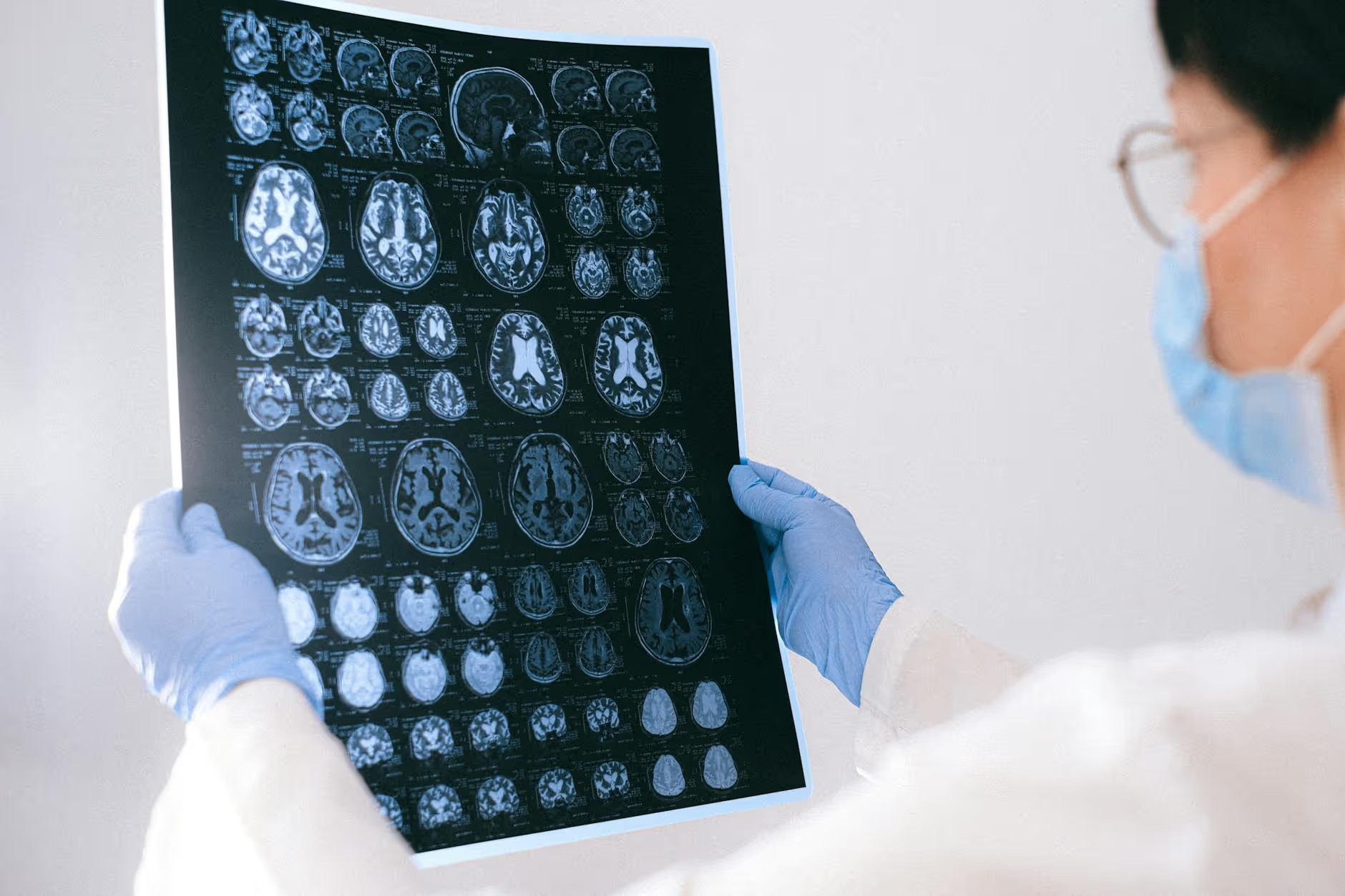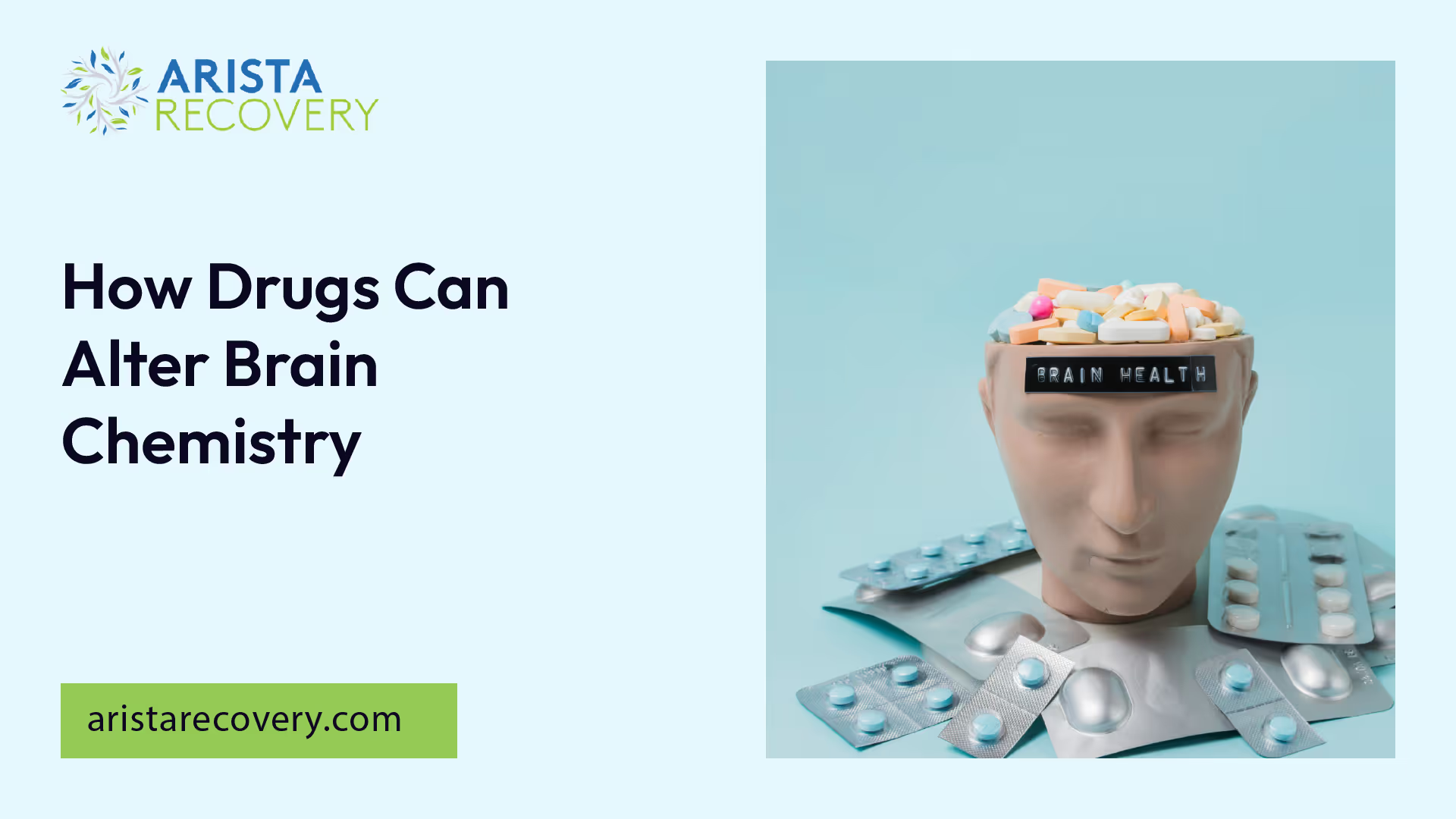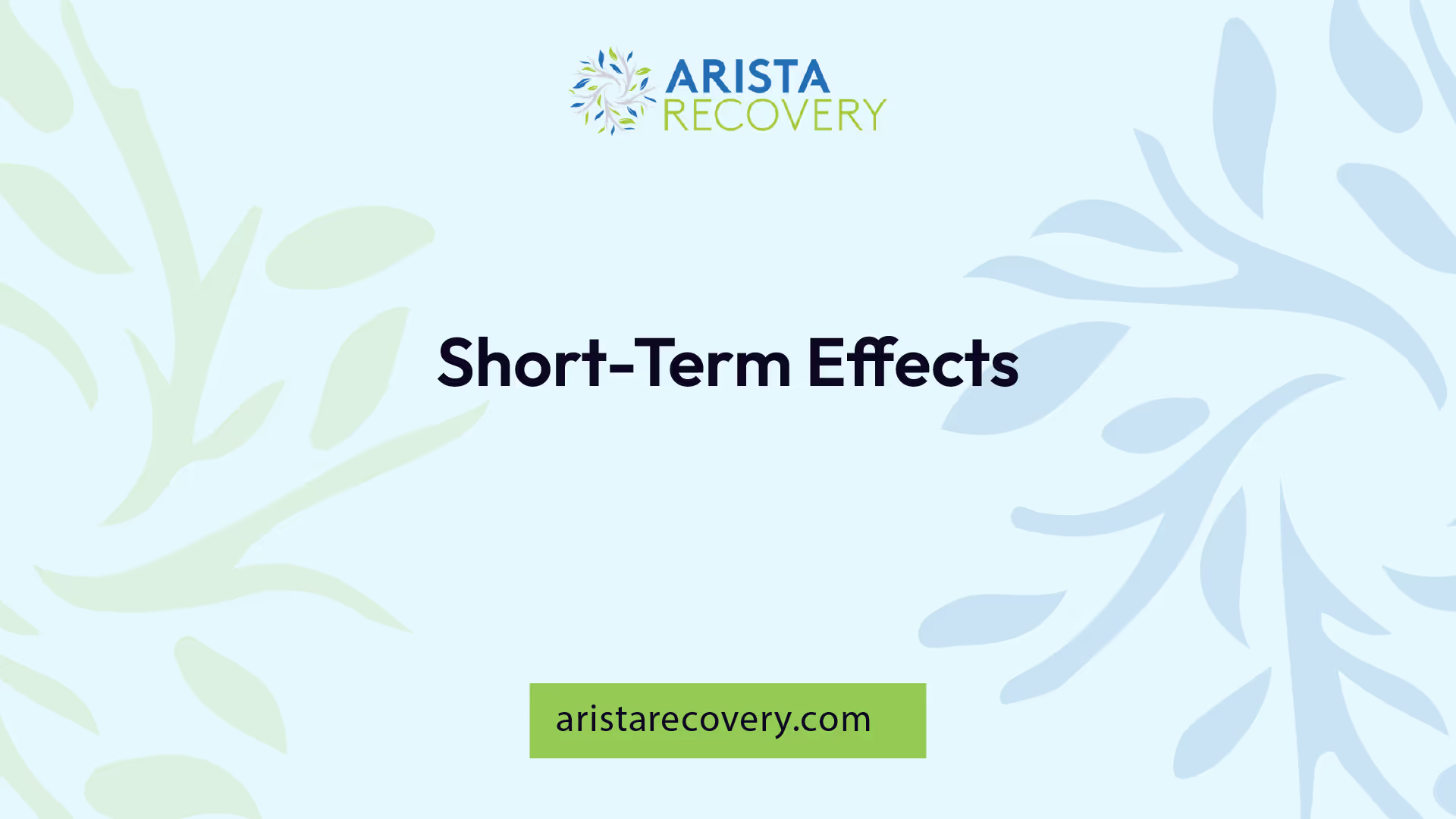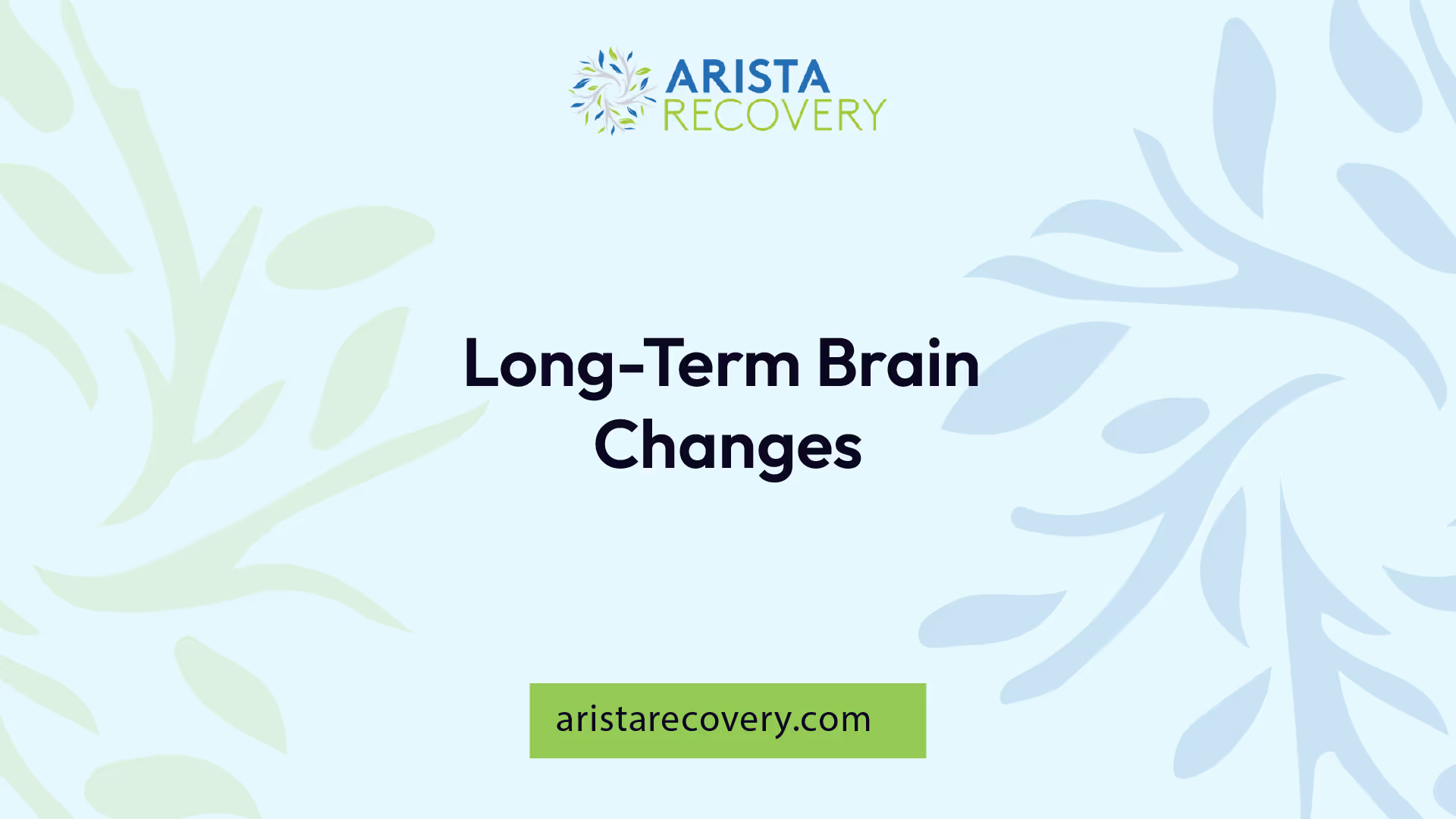How Drugs Can Alter Brain Chemistry

Understanding Drug Effects
Understanding how drugs affect the brain is crucial for individuals seeking recovery from addiction. Drugs can significantly alter brain chemistry and function, leading to both immediate and long-term effects.

Brain Response to Drugs
When drugs enter the body, they interact with the brain's neurotransmitter systems. Neurons utilize a chemical process called neurotransmission to transfer information across synapses, involving the release of neurotransmitters and subsequent binding to receptor proteins on neighboring neurons [1]. Drugs of abuse disrupt this process by either activating receptors or inhibiting the reuptake of neurotransmitters, dramatically altering the natural balance of brain chemistry.
For instance, opiates activate specific opioid receptors, while substances like cocaine block the reuptake of neurotransmitters, including dopamine, norepinephrine, and serotonin [1]. This leads to heightened feelings of pleasure and can push individuals towards repeated use.
Dopamine Release and Reward Circuit
Dopamine, a neurotransmitter central to the brain's reward circuit, plays a critical role in shaping behaviors. When drugs induce feelings of euphoria, they cause significant surges of dopamine, reinforcing drug-seeking behavior. The mesolimbic dopamine pathway, particularly, is crucial in these processes, connecting the ventral tegmental area (VTA) and the nucleus accumbens (NAcc). This pathway is activated not only by natural rewards, such as food and sex, but also by drugs of abuse.
The table below summarizes how different drugs affect dopamine levels:
Drug TypeMechanism of ActionDopamine ImpactOpiatesActivate opioid receptorsIncreases dopamine releaseCocaineInhibits dopamine reuptakeProlongs dopamine effectsAmphetaminesInhibit dopamine reuptake and increase releaseIncreases dopamine activity
Stimulant drugs like cocaine and amphetamines lead to elevated feelings of well-being by enhancing dopaminergic activity within the mesolimbic system [3]. This powerful impact on the brain's reward system is one reason why these substances can lead to addiction, as they stimulate cravings and reinforce the habit of drug use.
Understanding how drugs affect brain chemistry is vital for those on the path to recovery. For more information on drug-related effects, visit our articles on the deadliest effects of drugs and the opioid epidemic and drugs in America.

Short-Term Effects
Understanding the immediate effects of drugs on the brain and body is crucial for those seeking recovery from addiction. Various substances can lead to rapid changes that impact an individual's health and well-being.
Immediate Impact of Drugs
The immediate effects of drugs vary widely depending on the type of substance consumed. Many drugs cause the brain to release dopamine in higher amounts than what occurs naturally during pleasurable activities, reinforcing the desire to use drugs. For instance, methamphetamine can significantly increase wakefulness and physical activity while simultaneously decreasing appetite. Short-term usage also results in the release of dopamine, activating the brain's reward circuitry, which can lead to repetitive use.
The immediate impacts can be quite powerful, leading individuals to repeat these behaviors due to the pleasurable sensations induced by the drugs. The table below summarizes some immediate effects of various drugs:
Drug TypeImmediate EffectsMethamphetamineIncreased wakefulness, decreased appetite, euphoriaCocaineIntense energy, heightened alertness, euphoriaPrescription PainkillersPain relief, euphoria, relaxationDesigner DrugsHallucinations, altered perception, heightened mood
Cardiovascular and Physiological Effects
Drug use doesn't just affect the brain; it can also lead to serious cardiovascular and physiological changes. For example, methamphetamine is known to contribute to cardiovascular problems, including rapid heart rate, irregular heartbeat, and increased blood pressure. These effects may escalate to hyperthermia and possible convulsions, which can be life-threatening if not treated timely [4].
All drugs, regardless of type, induce chemicals to be released in abnormal patterns in the brain, leading to both immediate and long-lasting physical effects. Users may experience a range of physiological symptoms such as:
SymptomDescriptionRapid heart rateIncrease in heartbeat resulting from stimulant useIncreased blood pressureHigher than normal blood pressureHyperthermiaElevated body temperature, potentially dangerousConvulsionsUncontrollable muscle contractions
These changes signify the body's acute response to drug use and can be indicators of deeper, longer-term issues linked to addiction. Understanding these immediate effects is essential for anyone facing the prospect of addiction or seeking assistance in their recovery journey. For further insights on the dangers of drug use, readers can explore our article on the deadliest effects of drugs and other related topics.

Long-Term Brain Changes
The long-term effects of drug use on the brain are significant and can lead to profound changes in behavior, decision-making, and cognitive function. Understanding these adaptations is crucial for those seeking recovery from addiction.
Adaptation to Drug Use
Over time, the brain adapts to the presence of drugs, impacting regions beyond the primary reward pathway. This adaptation leads to physical changes in areas associated with judgment, decision-making, and memory. These modifications can result in behaviors that are hard-wired, causing drug-seeking behavior to become almost reflexive, thereby contributing to the development of addiction [5].
One study illustrated the impact of drug use on neuronal connections. After the use of certain drugs, particularly cocaine, connections between neurons in the nucleus accumbens—part of the reward pathway—increase in number, size, and strength. This adaptation is a crucial factor in the habitual nature of addiction, emphasizing how drug-related behaviors can evolve and strengthen over time.
Drug TypeType of AdaptationExample BehaviorCocaineIncreased neuron connectionsCompulsive seeking of the drugOpioidsReduced response to natural rewardsNeglecting social interactionsStimulantsEnhanced dopamine releasePrioritizing drug use over healthy activities
Impact on Memory and Learning
The effects of drugs extend to crucial cognitive functions, including memory and learning. The alteration of brain pathways involved in these processes can hinder an individual's ability to retain new information and form lasting memories. As drug use continues, even basic tasks can become challenging, affecting academic, occupational, and social functioning.
Dopamine, a key neurotransmitter in the brain's reward system, plays a vital role in reinforcing pleasurable activities, including drug use. When drugs induce intense feelings of euphoria, they produce stronger dopamine surges than natural rewards like food or social interactions [2]. This reinforcement encourages individuals to favor drug-seeking behaviors, overshadowing other vital activities associated with well-being.
As a result, the brain's ability to process and learn information is compromised, leading to difficulties in performing tasks that require focus and commitment. This can create a cycle where poor decision-making and impaired cognitive function reinforce continued drug use, making recovery increasingly challenging.
In recognizing these long-term effects, individuals seeking help can better understand the challenges they face and the importance of targeted recovery strategies, including therapy and support systems. Resources such as the opioid epidemic and drugs in America and most abused prescription drugs can provide further insight into the nature of addiction and recovery.
Neuronal Connections
Understanding how drugs affect the brain involves examining the changes in neuronal connections that occur with substance use. This disruption in brain chemistry can significantly influence behavior and lead to patterns of addiction.
Neural Rewiring
Drug abuse causes the brain to adapt in ways that alter its structure and function. Specifically, drug use leads to a reduction in the number of dopamine receptors at the synapse while increasing dopamine transporters. This adaptation results in a decreased responsiveness to the drug and to natural rewards, which leads to the development of tolerance. Consequently, individuals require larger amounts of the drug to achieve the same euphoric effects they once experienced.
The process of neural rewiring can lead to physical changes in areas of the brain responsible for judgment, decision-making, learning, and memory. Over time, as these brain alterations progress, certain drug-seeking behaviors become ingrained, almost reflexive in nature. This hard-wiring can make it particularly difficult for an individual to make rational choices regarding drug use.
Brain ChangesEffectsReduced dopamine receptorsDecreased response to drugs and natural rewardsIncreased dopamine transportersDevelopment of toleranceAltered regions responsible for judgmentDifficulty in decision-makingHard-wired drug-seeking behaviorsReflexive drug use
Habit Formation and Addiction
One of the most significant consequences of drug use is the formation of habitual behaviors that contribute to addiction. For example, after using drugs such as cocaine, the connections between neurons in the nucleus accumbens—the core part of the brain's reward pathway—increase in number, size, and strength. This change supports the development of addictive behaviors, making drug-seeking actions a part of one's daily routine [5].
The brain learns to associate certain behaviors with pleasure. People with addiction often discover that specific drugs or combinations thereof can induce feelings of euphoria. Consequently, their brains start to remember these pleasurable experiences, further reinforcing the urge to repeat them. This cycle leads to increasingly compulsive behavior, where the person's ability to resist cravings and make rational decisions is significantly impaired [6].
Individuals striving for recovery may benefit from understanding these mechanisms. Recognizing the brain's adaptive responses to drugs can illuminate why overcoming addiction requires both behavioral change and therapeutic support. For further information on the recovery process, one can explore resources on the deadliest effects of drugs and the opioid epidemic and drugs in America.
Reversing Brain Damage
Understanding how to reverse the impacts of drug addiction is vital for those seeking recovery. The brain has incredible abilities to heal and adapt over time, primarily through processes known as neuroplasticity and recovery methods.
Neuroplasticity and Recovery
Neuroplasticity refers to the brain's ability to reorganize itself by forming new neural connections throughout life. This property is particularly crucial when recovering from the effects of drug addiction. According to BlueCrest Recovery, long-term substance use can alter how different brain centers function, affecting impulse control, emotions, and memory.
During recovery, the brain can begin to repair itself by re-establishing its chemical balance. This process allows individuals to regain control over their impulses and improve their emotional state. Through targeted therapeutic practices, those in recovery can leverage neuroplasticity to build healthier brain pathways.
Repairing Brain Function
Restoring brain function after drug use involves several strategies aimed at enhancing neuroplasticity and promoting overall brain health. Here are some important elements of this restorative process:
StrategyDescriptionHealthy DietConsuming a balanced diet rich in omega-3 fatty acids, antioxidants, and vitamins can support brain health.Physical ActivityRegular exercise increases blood flow to the brain and promotes the creation of new neurons.Cognitive Behavioral Therapy (CBT)This therapeutic approach helps individuals recognize and change negative thinking patterns, allowing for improved emotional regulation.Mindfulness PracticesIncorporating mindfulness techniques can enhance emotional awareness and self-regulation.
According to information from Meta Addiction Treatment, the brain's recovery process is slow but can lead to significant improvements in decision-making, memory, and emotional stability. Engaging in these strategies can help individuals rebuild their brain's functional capacity and foster a healthier lifestyle post-addiction.
For more insights into the various effects of drugs on the brain, refer to our sections on deadliest effects of drugs and opioid epidemic and drugs in America. Understanding these foundational elements is essential for anyone dealing with addiction and considering their options for recovery.
Recovery and Treatment
Recovery from drug addiction is a multifaceted process that includes various strategies and programs designed to help individuals regain control of their lives. Key components of recovery include mindfulness strategies and structured addiction recovery programs.
Mindfulness Strategies
Mindfulness techniques, such as meditation and deep breathing, can significantly contribute to recovery. These practices help reduce the risk of relapse by promoting self-awareness and emotional regulation. Mindfulness also aids in stress reduction, which is crucial during recovery when individuals may face triggers that could lead to drug use.
Mindfulness TechniqueBenefitsMeditationReduces stress, enhances focus, and promotes relaxation.Deep BreathingHelps in managing anxiety and emotional responses.Mindful Movement (e.g., Yoga)Encourages physical wellness and emotional stability.
Implementing mindfulness routines can foster a sense of peace and clarity, making it easier for individuals to navigate the challenges of addiction recovery.
Addiction Recovery Programs
Structured addiction recovery programs play a crucial role in the healing journey. These programs often utilize a combination of therapeutic approaches to assist individuals in overcoming addiction and repairing brain function. For instance, Meta Addiction Treatment provides various resources such as detoxification, Cognitive Behavioral Therapy (CBT), and mindfulness strategies.
Program ComponentDescriptionDetoxificationThe process of allowing the body to clear substances while providing medical support.Cognitive Behavioral Therapy (CBT)A form of therapy that helps change negative thought patterns and behaviors associated with addiction.Mindfulness & MeditationTechniques implemented to enhance mental health and reduce the chances of relapse.
Evidence suggests that participating in comprehensive recovery programs can lead to improved outcomes for individuals struggling with addiction. Successful recovery often involves ongoing support and connection to the community, emphasizing the importance of a holistic approach to treatment.
For more detailed insights, individuals can explore the deadliest effects of drugs, the most abused prescription drugs, and the opioid epidemic and drugs in America to gain a deeper understanding of how drugs affect brain function and the path to recovery.
References
[1]: https://www.ncbi.nlm.nih.gov/books/NBK232964/[2]: https://nida.nih.gov/publications/drugs-brains-behavior-science-addiction/drugs-brain[3]: https://www.ncbi.nlm.nih.gov/pmc/articles/PMC80880/[4]: https://nida.nih.gov/publications/research-reports/methamphetamine/what-are-immediate-short-term-effects-methamphetamine-misuse[5]: https://learn.genetics.utah.edu/content/addiction/brainchange/[6]: https://www.bluecrestrc.com/effects-drugs-human-brain/[7]: https://metaaddictiontreatment.com/how-to-repair-your-brain-after-drug-use/
When mental health challenges and addiction intersect, it can feel isolating. At Arista, we offer compassionate, evidence-based, and trauma-informed care to help you heal, grow, and move forward.
You’re not alone in this.
When mental health challenges and addiction intersect, it can feel isolating. At Arista, we offer compassionate, evidence-based, and trauma-informed care to help you heal, grow, and move forward.
Support that moves with you.
You’ve taken a brave first step. At Arista Recovery, we’re here to help you continue with best-in-class care designed for long-term healing and support.
.webp)






